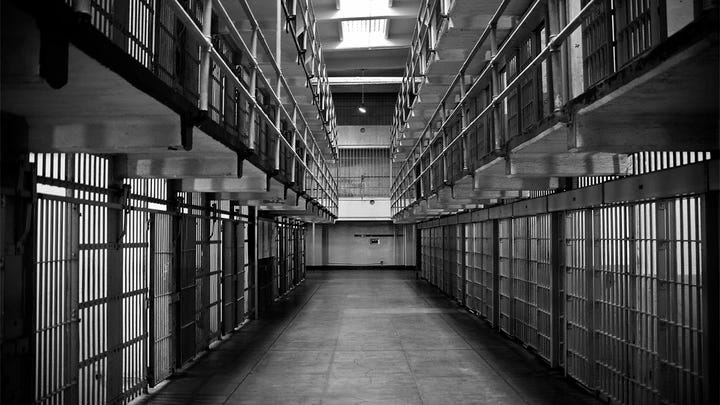Justice Requires Certainty: Why Louisiana Must Review All Non-Unanimous Convictions
By Micah S. Eighton Guest Contributor
I believe in justice. I believe in the death penalty for crimes like rape, murder, molestation, and human trafficking.
Let that be clear from the beginning. I am not writing this as someone who wants to soften consequences for the guilty. Quite the opposite—I believe some crimes are so heinous, so destructive to the soul and the fabric of our communities, that the most severe penalty is warranted. But I also believe justice must be righteous, impartial, and certain. It must be grounded in truth, not tainted by politics or prejudice. That’s why Louisiana’s decision to resume executions—while more than 1,500 people remain imprisoned due to non-unanimous jury verdicts—should trouble every person who cares about justice, accountability, and faith.
A Broken System Built on Injustice
For over a century, Louisiana allowed felony convictions without requiring unanimous jury decisions. Until 2018, a 10-2 vote was enough to sentence someone to life in prison—or even death. This system was not an accident of history. It was a product of the 1898 constitutional convention, deliberately designed to silence Black jurors and guarantee convictions, especially of Black defendants.
In 2020, the U.S. Supreme Court ruled in Ramos v. Louisiana that non-unanimous jury convictions violate the Sixth Amendment of the Constitution. But in a controversial move, the Court did not apply that decision retroactively. As a result, hundreds—perhaps over a thousand—men remain behind bars in Louisiana for convictions now recognized as unconstitutional.
Many of them are serving life sentences without the possibility of parole. Some could be eligible for execution.
The Resumption of Executions—and Its Moral Crisis
After a 15-year hiatus, Louisiana resumed capital punishment this year, carrying out an execution using nitrogen gas. The first execution by this method was widely reported as deeply disturbing and possibly botched. It was carried out in the name of justice, but can justice truly be served while we ignore the fact that many others were convicted by a broken, discriminatory system?
The ethical contradiction here is profound. How can we proceed with ending lives while we haven’t fully reckoned with those who may have been imprisoned unjustly?
Executing the guilty while ignoring the innocent is not justice—it’s vengeance in disguise.
Justice, Scripture, and Due Process
As someone who grounds my views in Scripture, I must emphasize that biblical justice demands certainty. The death penalty in the Old Testament was never handed down lightly. It required multiple witnesses, rigorous evidence, and complete clarity. Ambiguity was not acceptable. And injustice—especially at the hands of authority—was condemned in the strongest terms.
Deuteronomy 16:20 says, “Justice, and only justice, you shall pursue.” Not revenge. Not expediency. Not political posturing. Justice.
What Louisiana has done for decades—convicting people without full agreement from a jury of their peers—was and is unjust. Continuing to imprison them, some even under threat of execution, is not just wrong—it is unbiblical. It is immoral. It is un-American.
Senate Bill 218: A Step Toward Restoration
There is a solution on the table: Senate Bill 218, introduced by Sen. Royce Duplessis. This bill would allow individuals convicted by non-unanimous juries to petition for post-conviction relief. It doesn’t guarantee release—it guarantees a review. That’s all many of these men are asking for: the chance to have their cases revisited under a fair and constitutional standard.
Among them are men like Jermaine Hudson, who spent years behind bars after being convicted by a split jury. His accuser later recanted. He was eventually released. But what if he hadn’t spoken up? What if the injustice had remained buried?
How many more like him are still waiting?
We Owe Them Their Day in Court
Louisiana cannot move forward in good faith while leaving this wound open. Before we carry out another execution, before we issue another life sentence, we must look backward and confront the sins of our legal past. Justice requires it.
We should:
Pass and implement SB 218 or a stronger version of it.
Pause further executions until all non-unanimous cases are reviewed.
Ensure transparency and access to legal support for those wrongfully convicted.
Offer restitution and apology where injustice is found.
This isn’t about being soft. It’s about being right.
Closing Thoughts: What Real Justice Looks Like
I believe in justice—including capital punishment for the worst among us. But justice must be fair. It must be honest. And it must be rooted in truth. We cannot claim to value life and law while ignoring the broken systems that have condemned the innocent alongside the guilty.
The people of Louisiana have an opportunity to lead the nation—not just in law and order, but in moral clarity.
Let us pursue justice, and only justice.
If I Were Governor, Part 1: Reclaiming the People’s Government
“When did we stop being the ones in charge?”





